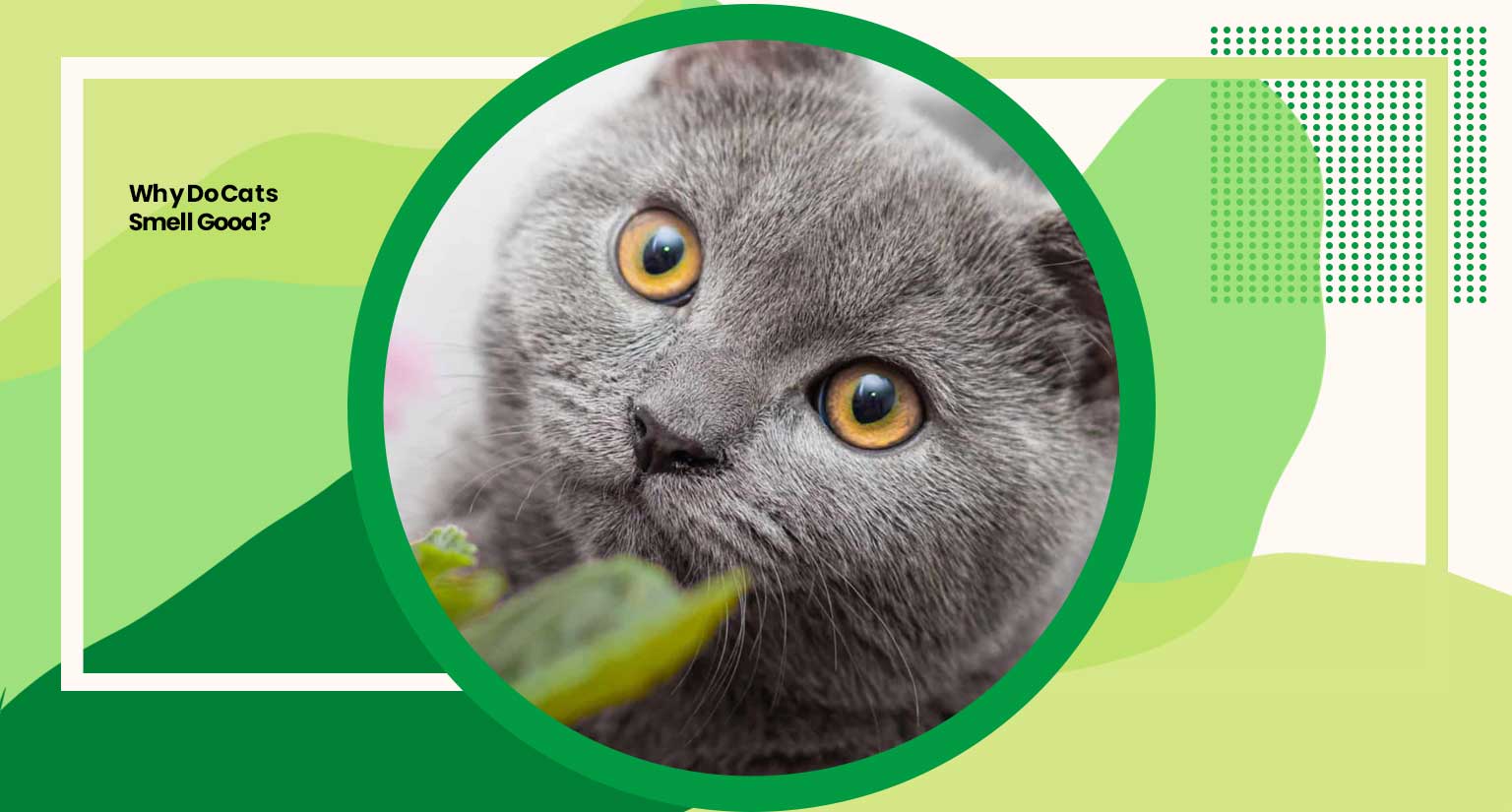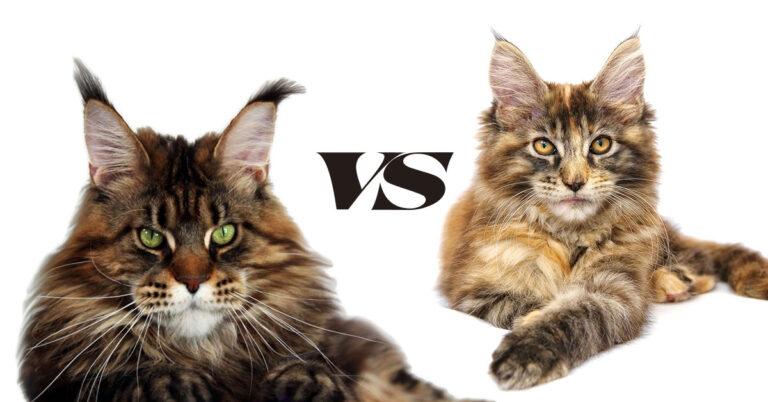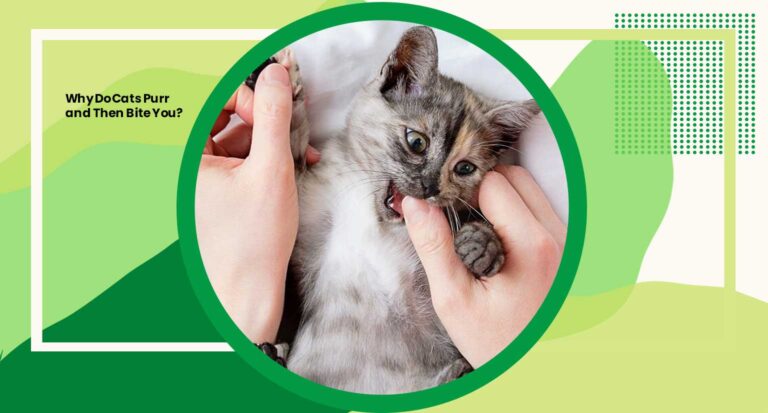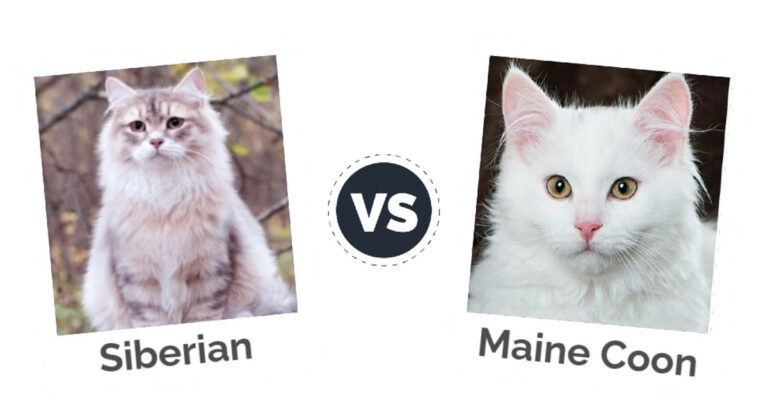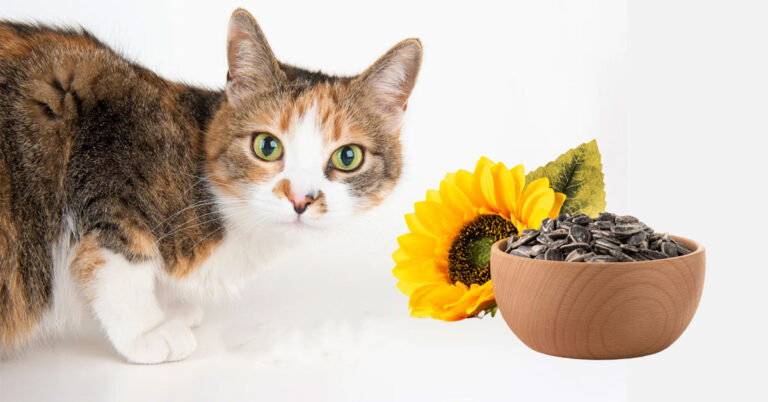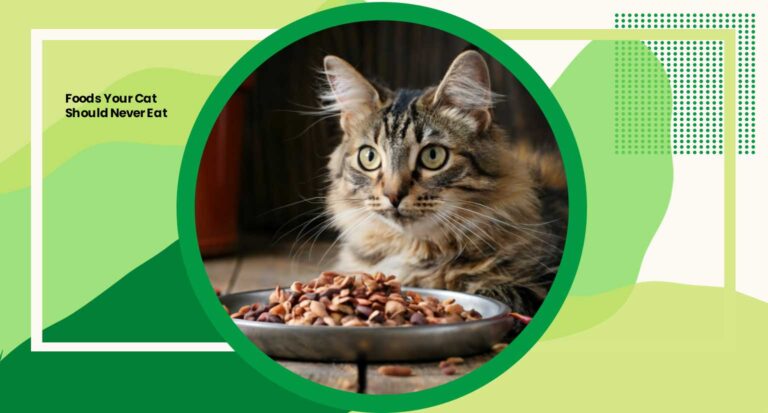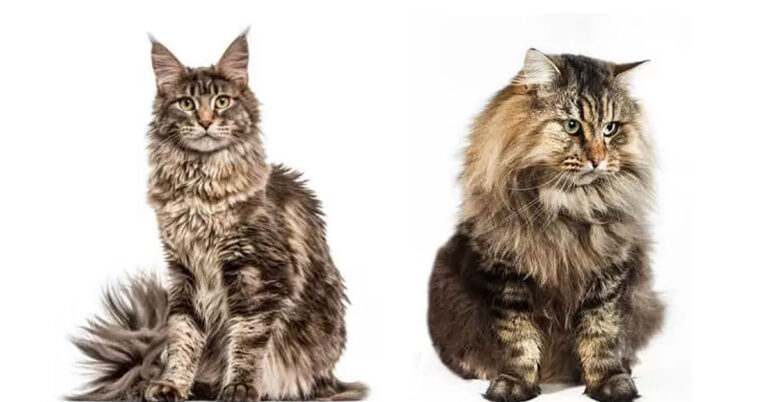Why Do Cats Smell Good?
Delving into the mysterious allure of our feline friends unveils an intriguing question: why do cats smell good or have such a delightful fragrance?
Beyond their playful antics and graceful demeanor lies an enigma that often goes unnoticed—the subtle yet captivating fragrance that surrounds them.
Understanding the science behind why cats smell good unravels the layers of their charm and mystique.
Why do I love smelling my cat?
One reason behind the adoration for a cat’s scent lies in the pheromones they emit. These chemical messengers, imperceptible to the human nose, trigger a sense of comfort and familiarity.
When you find solace in your cat’s scent, it’s often due to these subconscious signals that promote relaxation and bonding.
Nurturing Instincts at Play
Humans are wired to respond positively to scents associated with nurturing, and a cat’s smell can evoke similar feelings.
The natural grooming habits of cats contribute to a clean, pleasant aroma that appeals to our innate nurturing instincts, fostering a deeper emotional connection.
Unique Scent Profile
Each cat boasts a distinctive scent profile, influenced by various factors like diet, grooming habits, and overall health.
This unique olfactory fingerprint can be alluring and comforting, much like how a familiar perfume evokes memories and emotions.
The Pheromone Connection
One reason behind the adoration for a cat’s scent lies in the pheromones they emit
These chemical messengers, imperceptible to the human nose, trigger a sense of comfort and familiarity.
When you find solace in your cat’s scent, it’s often due to these subconscious signals that promote relaxation and bonding.
Nurturing Instincts at Play
Humans are wired to respond positively to scents associated with nurturing, and a cat’s smell can evoke similar feelings.
The natural grooming habits of cats contribute to a clean, pleasant aroma that appeals to our innate nurturing instincts, fostering a deeper emotional connection.
Unique Scent Profile
Each cat boasts a distinctive scent profile, influenced by various factors like diet, grooming habits, and overall health.
This unique olfactory fingerprint can be alluring and comforting, much like how a familiar perfume evokes memories and emotions.
Chemical Communication
While we might not consciously register it, cats communicate through scent marking.
They leave subtle traces of their scent on objects and humans they consider their territory or family. As we perceive these scents, it reinforces our bond with them, fostering a sense of belonging and familiarity.
Association with Positive Experiences
For many cat owners, the act of smelling their feline companions is associated with joyous and comforting moments.
Over time, this association between the cat’s scent and positive experiences strengthens, leading to a genuine fondness for the smell of their furry friends.
Scientific Curiosity
Beyond emotional and instinctual reasons, the fascination with a cat’s scent might stem from scientific curiosity.
Exploring the intricacies of why certain scents appeal to us and how they influence our emotions adds to the allure of understanding our unique bond with these mesmerizing creatures.
Understanding the multifaceted reasons behind the appeal of a cat’s scent sheds light on the depth of our connection with these enigmatic companions.
Why do cats love stinky smells?
Cats possess a highly sensitive sense of smell, far surpassing that of humans. What might seem repugnant to us could be a treasure trove of information for them.
They use their keen olfactory senses to explore and understand their environment, and what we perceive as foul might carry intriguing details for them.
Instinctual Survival Traits
Stinky smells often contain scents of prey or potential food sources that have started decomposing. Cats, as natural hunters, are instinctively attracted to such scents.
In the wild, these scents signal a potential meal, triggering their hunting instincts and prompting investigation.
Scent Marking and Territory
Oddly enough, what we consider stinky might be a form of communication for cats.
They use their scent glands to mark their territory, and seemingly repulsive odors for us might be an inviting and comforting scent for them.
By investigating these smells, cats gather information about other animals and establish their territorial boundaries.
Exploration and Curiosity
Cats are inherently curious creatures. Their attraction to stinky smells might simply stem from their insatiable curiosity about their surroundings.
Investigating unfamiliar scents is a way for them to gather information about their environment and the creatures that inhabit it.
Preference for Stronger Scents
While certain smells might seem overpowering to us, cats might be drawn to them due to their stronger nature.
Cats have a preference for intense scents, and what we perceive as stinky could be intriguing and stimulating to their olfactory senses.
Evolutionary Traits
Stinky smells, particularly those associated with decomposition or strong odors, might have evolutionary significance for cats.
These scents could have historically indicated potential food sources or dangers, shaping their natural inclinations and behaviors.
The fascination of cats with seemingly unpleasant smells is a blend of their evolutionary instincts, sensory perception, and inherent curiosity, showcasing the intricate nature of these captivating animals.
Why do cats smell better than dogs?
Cats are meticulous groomers by nature. Their self-grooming routines involve licking and cleaning their fur regularly, which helps to maintain a clean and pleasant scent.
This fastidious grooming behavior significantly contributes to their generally appealing smell.
Less Oily Coat
Compared to dogs, cats typically have less oily skin. This difference in oil production can impact the scent each pet emits.
Dogs’ skin tends to produce more oil, which can lead to a stronger odor, while cats’ naturally lower oil production might contribute to their milder scent.
Smaller Sebaceous Glands
Cats have smaller sebaceous glands compared to dogs. These glands produce oils that can contribute to an animal’s scent.
The smaller glands in cats may result in less oil production, affecting the intensity of their natural odor compared to dogs.
Scavenging Behaviors
Dogs are historically known for scavenging behaviors, sometimes leading to encounters with strong or unpleasant smells.
Cats, being more selective in their diet and less prone to scavenging, might avoid exposure to strong odors that could affect their overall smell.
Dietary Factors
Diet plays a crucial role in determining an animal’s scent. Cats often have specific dietary needs and might consume foods that contribute to a milder, more agreeable scent.
Their diet, coupled with their digestive system’s efficiency, might influence their overall odor.
Distinctive Sweat Glands
Cats have scent glands located in various parts of their body, such as their paw pads. These glands release subtle scents that are less intense than those produced by dogs’ sweat glands.
This difference in scent gland distribution can impact the overall perceived smell of each animal.
The comparatively milder scent of cats in comparison to dogs stems from a combination of their grooming habits, natural physiology, dietary factors, and scent gland distribution, contributing to their generally pleasant aroma.
Why do cats smell better than dogs?
Cats dedicate a significant amount of time to grooming themselves. Their tongues, designed with tiny hook-like structures, efficiently remove dirt, debris, and excess oil from their fur.
This meticulous grooming routine not only keeps their coat clean but also contributes to a pleasant scent.
Distinctive Odor Detection
Cats possess an acute sense of smell, enabling them to detect and address any scent abnormalities promptly.
They are swift in grooming specific areas where odors might accumulate, effectively managing any potential unpleasant smells before they become noticeable.
Unique Skin pH Balance
The pH balance of a cat’s skin differs from that of a dog’s. This variance impacts the type and amount of bacteria that thrive on their skin, influencing the overall scent emitted.
Cats’ skin tends to maintain a more acidic pH, which can contribute to a less potent odor compared to dogs.
Minimal Scent Retention
Cats tend to retain fewer odors on their fur due to their grooming habits and lower oil production in their skin. This means they are less prone to capturing and retaining environmental scents that might contribute to an unpleasant smell.
Reduced Drooling and Saliva
Dogs, especially certain breeds, are more prone to drooling, leading to a characteristic smell associated with saliva. Cats, on the other hand, typically produce less saliva and drool less frequently, contributing to a milder overall scent.
Environmental Exposure
Cats often prefer cleaner environments and might be more particular about avoiding sources of strong or unpleasant smells.
Their tendency to be more selective in exploring and interacting with various scents can contribute to their perceived better smell.
Minimal Body Odor
Cats have fewer sweat glands than dogs and produce less body odor. Their sweat glands are primarily located in areas such as their paw pads, emitting subtler scents compared to the larger sweat glands in dogs.
When considering why cats might have a more favorable scent than dogs, their grooming routines, distinct skin characteristics, and tendencies towards cleanliness play crucial roles.
These factors collectively contribute to the delightful and often more subtle aroma associated with our feline companions.
Why do cats smell good after sleeping?
After a restful slumber, cats typically engage in a grooming ritual. This post-nap grooming involves meticulously licking their fur, cleaning away any dirt or odors that might have accumulated.
This fastidious cleaning routine contributes significantly to their pleasant scent.
Secretion of Relaxation Pheromones
During sleep, cats emit relaxation pheromones. These chemicals are not only indicators of a comfortable and contented state but also have a mild, calming scent.
As cats awaken from a restful nap, the lingering effects of these pheromones can contribute to their appealing smell.
Oil Redistribution and Skin pH Balance
While resting, cats’ sebaceous glands, responsible for oil production, distribute natural oils across their fur. This redistribution of oils helps maintain moisture and prevents the accumulation of unpleasant odors.
Additionally, their balanced skin pH post-nap can contribute to a more agreeable scent.
Relaxed and Contented State
When cats are deeply relaxed and content, they often emit subtle scents associated with their serene state.
After a peaceful nap, this aura of tranquility might manifest in their scent, adding to their overall pleasant aroma.
Eradication of Environmental Odors
Cats, during their sleep, often curl up in secluded, clean spaces, away from potential sources of strong odors.
By choosing clean and relatively odor-free locations for their naps, they avoid picking up unpleasant scents, contributing to their refreshed smell after waking up.
Efficient Dispersal of Stale Odors
During sleep, cats’ movements and grooming habits help disperse any stale or stagnant odors that might have clung to their fur.
This process aids in eliminating any lingering scents, leaving them smelling fresh upon waking.
The delightful scent emitted by cats after their slumber is a result of their grooming routines, natural pheromone secretion, oil redistribution, and choice of clean resting spots, showcasing their innate ability to maintain a pleasant fragrance.

